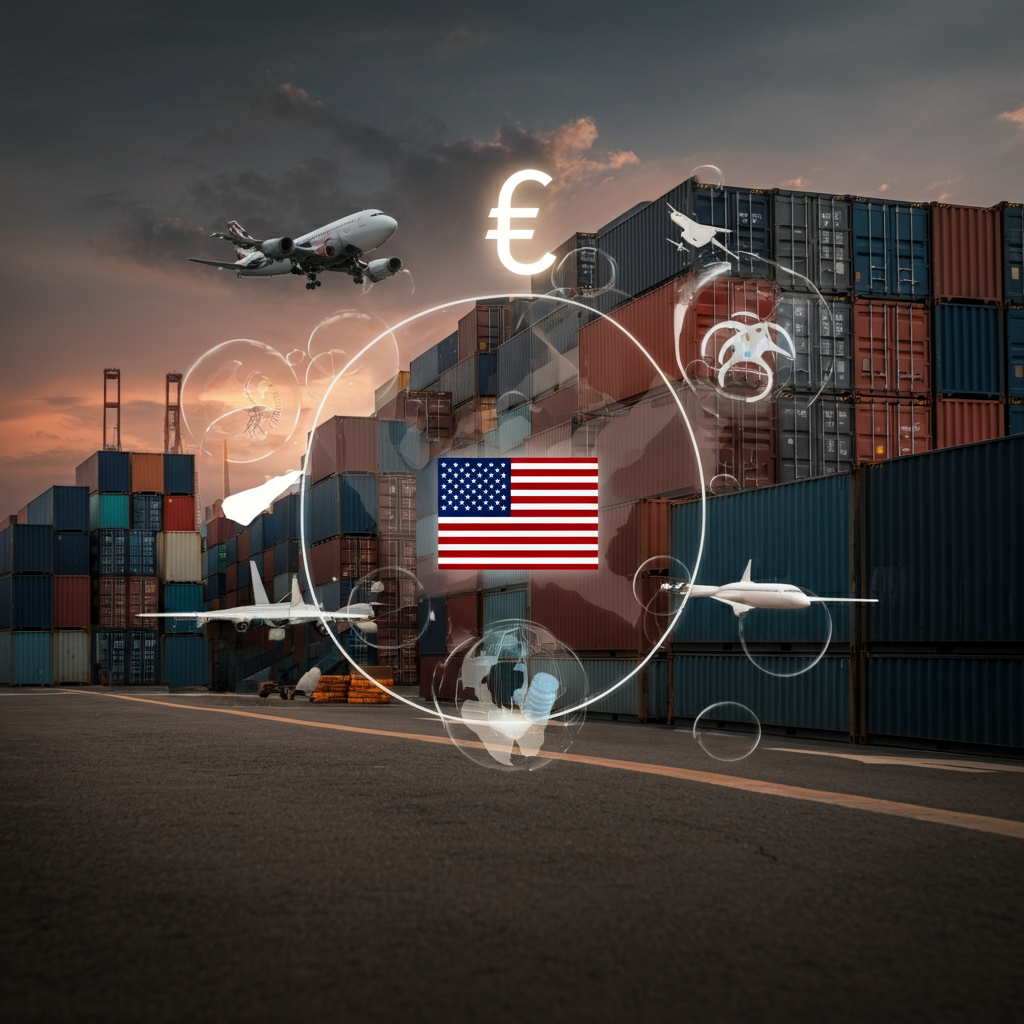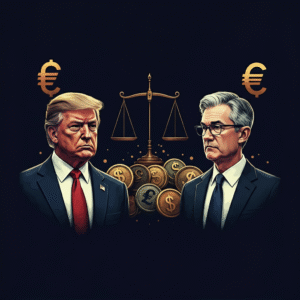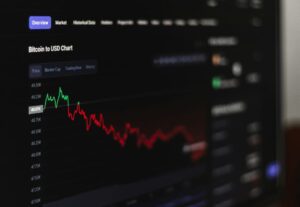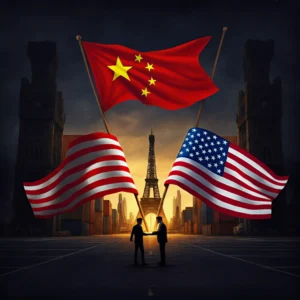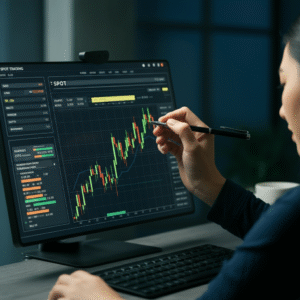Trade refers to the exchange of goods and services between countries. It is a crucial part of every nation’s economy because it allows access to resources, technologies, and products that may not be available or affordable locally. For example, one country might export oil while importing electronics from another.
This exchange helps countries meet their needs efficiently, promotes economic growth, creates jobs, attracts investment, and encourages the transfer of technology and innovation. In today’s globalized world, international trade is essential for economic development and is deeply integrated into national strategies.
Why Trade Fights Have Become More Common in 2025, Especially Between Powerful Economies
In 2025, trade disputes have become more frequent, particularly among major economies like the United States, China, India, and the European Union. Several factors are driving this trend. First, geopolitical tensions and a growing sense of economic nationalism have led countries to prioritize self-reliance through policies such as “Make in Country” initiatives. To protect domestic industries from foreign competition, governments are imposing higher tariffs, introducing import restrictions, and even applying economic sanctions. Additionally, there is intense competition in advanced sectors such as artificial intelligence and green technologies, leading to clashes over intellectual property and strategic market control. Climate change policies and labor standards are also contributing to disagreements, as developed and developing nations often have conflicting priorities. As a result, trade in 2025 is no longer just about economics—it has become a key element of global political and strategic power.
What Is a Trade War? Simple Explanation
When Countries Put Extra Taxes (Tariffs) or Bans on Each Other’s Goods
A trade war happens when two or more countries start placing high taxes, called tariffs, or complete bans on each other’s imported goods. This usually begins when one country feels that its industries are being harmed by unfair foreign competition, so it tries to protect them by making imported goods more expensive. In response, the other country does the same, and the situation escalates into a back-and-forth conflict. These actions are not done through military means but through economic measures, and the goal is often to pressure the other side into changing its trade practices or policies.
Why This Hurts Both Sides — More Expensive Products, Slow Business, and Rising Tension
Trade wars end up hurting both sides involved. When tariffs are added, the cost of imported goods rises, which means everyday products become more expensive for consumers. Businesses that rely on imported raw materials or parts face higher costs, leading to lower profits or increased prices for their own customers. This reduces overall economic activity, slows down business growth, and can even lead to job losses. Moreover, trade wars increase political tension between countries, damage long-term relationships, and create uncertainty in global markets. Instead of solving problems, trade wars often lead to deeper economic struggles for everyone involved.
U.S. vs. China: The Biggest Trade Fight of 2025
What’s Going On Between America and China Right Now
The U.S.-China trade conflict has intensified in 2025, with both nations imposing escalating tariffs and trade restrictions. The U.S., under President Donald Trump, has implemented tariffs as high as 145% on Chinese imports, while China has retaliated with tariffs up to 125% on U.S. goods. These measures have disrupted global supply chains and unsettled financial markets. Reuters+1Wikipedia+1
Issues Like Tech Bans, Chip Exports, Spying Concerns, and Trade Imbalances
Central to the dispute are technology and defense sectors. The U.S. has restricted the export of advanced AI chips, such as Nvidia’s H20 and AMD’s MI308, to China, citing national security concerns. These chips are crucial for China’s AI and military advancements. In response, China has imposed export controls on rare earth elements and blacklisted several American firms, including Illumina and PVH Group, accusing them of market violations. Additionally, the U.S. has initiated investigations into Chinese tech companies like Huawei and SMIC, while China has increased investments in its domestic tech industry to reduce reliance on foreign technology. CTOL Digital SolutionsLatest news & breaking headlines+1Investopedia+1China News Hub+1Wikipedia+1Toxigon
How Both Countries Are Trying to Protect Their Own Industries
The U.S. aims to safeguard its technological edge and national security by limiting China’s access to critical technologies. Simultaneously, it seeks to reduce the trade deficit with China. China, on the other hand, is focusing on achieving technological self-sufficiency and protecting its domestic industries from foreign competition. Both nations are leveraging tariffs and export controls as tools to exert economic pressure and assert their strategic interests.
This escalating trade war has profound implications for global trade dynamics, affecting industries ranging from technology to agriculture, and influencing the economic policies of other nations caught in the crossfire.
New Tensions: U.S. and Europe on Digital Trade
Why the U.S. and European Union Are Clashing Over Data Privacy and Tech Taxes
The U.S. and the European Union are in conflict over digital trade due to differing approaches to data privacy and taxation of tech companies. The EU has implemented the Digital Services Act (DSA) and Digital Markets Act (DMA), aiming to regulate large tech firms and ensure fair competition. These regulations apply to companies like Apple, Meta, and TikTok, regardless of their headquarters or leadership location . In contrast, the U.S. has withdrawn from global tax negotiations and opposes unilateral digital taxes, viewing them as discriminatory against American companies .
The Debate Over American Tech Giants Being Taxed in Europe
European countries, including Italy, have imposed digital services taxes targeting large tech companies with significant revenues. These taxes are seen as a way to ensure that tech giants contribute fairly to national economies. However, the U.S. argues that such taxes are unfair and harm American businesses. For example, Italy’s 3% web tax on companies with global revenues over €750 million has been criticized by the U.S. as discriminatory .
How This Could Affect Apps, Cloud Services, and Online Businesses
The ongoing digital trade tensions between the U.S. and Europe could have significant implications for various digital services. European companies are reconsidering their reliance on U.S.-based cloud providers like Amazon Web Services, Microsoft Azure, and Google Cloud due to concerns over data sovereignty and potential regulatory challenges. This shift may lead to increased demand for regional cloud services and impact the operations of apps and online businesses that depend on these platforms .
The Role of India, Brazil, and Other Rising Economies
How Countries Like India Are Becoming Stronger in Global Trade
India is emerging as a significant player in global trade, with its trade volume increasing steadily. In 2024, U.S.-India trade reached $129 billion, and both nations aim to double this figure to $500 billion by 2030. India’s strategic location in the Indo-Pacific region and its growing manufacturing sector contribute to its stronger role in global trade.
Why These Nations Want More Fair Deals from the U.S., China, and Europe
Rising economies like India and Brazil are seeking more equitable trade agreements with major powers to ensure fair market access and avoid protectionist measures. India, for example, is negotiating a trade deal with the U.S. to secure better access for its agricultural and medical exports while addressing U.S. tariffs. Similarly, Brazil is pursuing new strategic partnerships to enhance its trade position and reduce reliance on traditional markets.
Growing Calls for Reform in Global Trade Rules
There is an increasing demand for reforming global trade rules to better reflect the interests of emerging economies. The International Monetary Fund (IMF) has urged the world’s largest economies to rebuild trust and strengthen a fair trade system. This call for reform aims to address the challenges posed by protectionism and ensure that trade policies are inclusive and beneficial for all nations.
In summary, as countries like India and Brazil continue to grow economically, they are advocating for fairer trade practices and reforms in global trade rules to better integrate into the world economy.
Energy & Food: New Frontlines of Trade Disputes
How War, Climate Change, and Supply Shortages Have Made Oil and Food Trade Very Sensitive
In 2025, global trade in oil and food has become increasingly volatile due to a combination of geopolitical conflicts, climate-induced disruptions, and supply shortages. The ongoing war in Ukraine has significantly impacted global food supplies, as Ukraine is a major exporter of wheat, maize, and oilseeds. The conflict has led to reduced exports and increased prices, affecting food security worldwide. Climate change has also exacerbated these issues, with extreme weather events disrupting agricultural production and supply chains. For example, U.S. farmers have faced crop losses due to flooding while dealing with the effects of trade tariffs and cuts in federal support programs. Energy markets are similarly under strain, with the U.S.-China trade war leading to export restrictions on critical minerals essential for electric vehicle production, which highlights vulnerabilities in the global energy supply chain.
Countries Fighting Over Who Gets What — and at What Price
Nations are increasingly asserting control over their natural resources and agricultural outputs. India, for example, imposed an export ban on white rice in 2023, leading to a surge in global rice prices and affecting countries heavily reliant on imports. Similarly, Russia’s invasion of Ukraine disrupted fertilizer supplies, as both countries are key exporters. This disruption has led to increased fertilizer prices, which in turn impacts global food production and prices.
Examples: Grain Export Bans, Energy Blackmail, or Fertilizer Restrictions
-
Grain Export Bans: India’s 2023 export ban on white rice significantly affected global rice prices, particularly impacting regions like Sub-Saharan Africa, which relies heavily on rice imports.
-
Energy Blackmail: Russia has been accused of using its energy exports as leverage, with actions in the fertilizer market being seen as a form of “blackmail” that threatens global food security.
-
Fertilizer Restrictions: The war in Ukraine disrupted the global fertilizer market, as both Russia and Ukraine are major exporters. This disruption has led to increased fertilizer prices, affecting food production worldwide.
These developments underscore the increasing weaponization of trade in essential commodities, where nations are leveraging their resources to exert economic and political pressure.
Sanctions & Boycotts: The Trade War Weapons
How Countries Punish Each Other by Cutting Off Trade
Sanctions and boycotts are powerful tools that countries use to punish or pressure other nations. When a country disagrees with another’s policies or actions, it may impose trade sanctions to cut off or limit trade. These sanctions can include blocking the export of essential goods, freezing assets, or limiting financial transactions. The goal is to harm the targeted nation’s economy and force it to change its behavior, without resorting to military conflict.
Sanctions on Russia, Iran, and Other Nations — and How It Affects Global Supply
In recent years, sanctions have been heavily used against Russia, especially in response to its invasion of Ukraine. These sanctions include freezing assets, limiting access to global financial systems, and banning exports of crucial technologies. Similarly, Iran has faced sanctions over its nuclear program, which has significantly impacted its oil exports and broader economy. Other nations like North Korea have also faced global sanctions that disrupt their trade and limit their economic growth. These sanctions can ripple across the global economy, causing supply shortages, increased prices, and shifts in market dynamics, particularly in industries like energy, agriculture, and technology.
The Impact on Regular People and Small Businesses
Sanctions and boycotts often hurt regular people and small businesses, even in the countries imposing them. For example, higher energy prices in Europe due to sanctions on Russia have raised the cost of living for citizens. In countries under sanctions, businesses struggle to import raw materials, leading to product shortages and inflation. Small businesses that depend on international trade may find themselves unable to access essential goods or sell their products in global markets. These economic disruptions lead to increased costs for consumers, job losses, and slower economic growth.
The Chip War: Why Microchips Are Causing Big Trouble
Microchips (Used in Phones, Cars, Defense Systems) Are Now Global “Weapons” in Trade Fights
Microchips have become crucial to modern technology, powering everything from smartphones and cars to military defense systems. As countries compete for dominance in high-tech industries, microchips have turned into strategic assets in global trade conflicts. These chips are essential for next-generation technologies like artificial intelligence (AI), 5G, and quantum computing, making them highly valuable in economic and military power plays.
The U.S. Blocking Chip Sales to China, and China’s Efforts to Build Its Own
The United States has increasingly restricted the sale of advanced microchips to China, citing national security concerns. The U.S. government argues that China could use advanced chips for military applications, which could harm American interests. In response, China is working to reduce its reliance on foreign chipmakers by investing heavily in developing its own chip manufacturing capabilities. This has led to a “chip war” where both countries race to secure access to and control over cutting-edge technology.
The Race to Dominate Future Tech Like AI, 5G, and Quantum Computing
The competition over microchips is part of a broader race to lead in technologies like AI, 5G networks, and quantum computing. Microchips are at the core of these technologies, and the country that dominates chip production will have a significant advantage in shaping the future of global tech. For example, the U.S. and China are vying for leadership in AI, where chips like GPUs (used in machine learning) play a pivotal role. Similarly, 5G technology relies on advanced microchips to enable faster and more efficient data transmission, further intensifying the competition. With quantum computing potentially revolutionizing industries, countries are investing heavily to secure chips that can handle the complex calculations required for quantum systems.
Shipping & Supply Chains: The Real Battlefield
Ports, Ships, and Routes Being Slowed Down Due to New Trade Policies
In recent years, global shipping has faced significant disruptions due to new trade policies, tariffs, and stricter regulations. These policies have led to delays at major ports, disruptions in shipping routes, and longer wait times for goods to reach their destinations. Countries have implemented new customs procedures, security measures, and inspections, all of which have slowed down the flow of goods. The global shipping industry, already strained by the pandemic, is now grappling with these added challenges, making it harder to move products efficiently.
Why Shipping Delays and Higher Costs Are Affecting Product Prices Globally
As shipping routes become congested and delays increase, the cost of transporting goods rises. This has a direct impact on product prices around the world. Manufacturers and retailers face higher costs to move products, which they often pass on to consumers in the form of higher prices. Items that rely on long-distance shipping, such as electronics, clothing, and food, are especially vulnerable to price hikes. Additionally, with shortages in shipping containers and a lack of available ships, the cost of goods continues to climb, exacerbating inflation in many regions.
Countries Looking for “Friend-Shoring” — Trading Only with Allies
In response to supply chain disruptions and geopolitical tensions, some countries are turning to “friend-shoring.” This strategy focuses on building trade relationships with trusted allies and reducing dependence on countries that may pose risks to supply chain stability. By strengthening ties with allies, countries aim to safeguard access to critical materials, technologies, and products while minimizing the impact of trade disruptions. Friend-shoring could lead to more regionalized trade, where countries prioritize dealing with neighbors or allies over more distant and potentially unstable trade partners.
Trade and Climate: A New Kind of Fight
Some Countries Are Putting “Green Taxes” on Imports to Fight Climate Change
As countries aim to reduce their carbon footprints and meet climate goals, some have started imposing “green taxes” or carbon tariffs on imported goods. These taxes are meant to encourage environmentally friendly practices by penalizing products that have a high carbon footprint, such as goods from industries that rely heavily on fossil fuels. The goal is to incentivize cleaner production methods and promote sustainability, but these taxes also impact international trade, particularly with countries that may not have the same environmental regulations.
Others Say This Is Unfair and Hurts Poor or Developing Countries
Critics argue that these green taxes disproportionately affect poor and developing countries. Many of these nations rely on industries that produce goods with higher emissions, and the added cost of green taxes could make their products less competitive in global markets. This could hurt their economies, as they would face additional trade barriers without having the same resources to invest in greener technologies. Developing countries are pushing back against these taxes, arguing that they need financial support and more time to transition to greener practices without facing penalties.
Climate Rules Are Becoming a Reason for New Trade Conflicts
Climate-related trade rules are becoming a new source of tension between nations. Developed nations, especially in the European Union and North America, are pushing for stricter environmental standards in trade agreements, while developing countries argue for more flexibility. These climate rules, such as carbon tariffs, are increasingly viewed as potential trade barriers, sparking new conflicts. Countries that feel unfairly targeted by green taxes are seeking ways to challenge these policies, either through international trade bodies or by seeking alternative markets. As climate change becomes a central issue in global trade, it is likely to fuel more disagreements and reshaping of global trade dynamics.
Who Gets Hurt the Most? (And Who Wins)
How Trade Fights Hurt Small Businesses, Farmers, and Ordinary People
Trade disputes and tariffs often hurt smaller businesses, farmers, and ordinary consumers the most. Small businesses that depend on affordable imported goods face higher costs when tariffs are imposed, which can lead to higher prices for their products. For example, farmers may struggle if tariffs increase the cost of the equipment or materials they rely on. Similarly, consumers pay more for everyday products like electronics, clothing, and food, leading to a rise in the cost of living. In developing countries, these challenges can exacerbate poverty and economic instability, as they have fewer resources to weather trade disruptions.
Big Countries May Survive, But Smaller Ones Suffer Big Losses
While large economies like the U.S. or China may have the resources to endure trade conflicts, smaller countries often suffer more significant losses. These countries typically rely on exports to larger markets and may not have the ability to absorb the costs of tariffs or trade restrictions. Small nations can see their key industries — such as agriculture or manufacturing — hit hard by trade barriers, which can result in job losses and slower economic growth. For example, a small country that relies on exporting agricultural products could face a sharp decline in revenue if tariffs are imposed on its goods.
Some Local Industries Grow When Imports Become Expensive
On the flip side, certain local industries may benefit when imports become more expensive due to trade fights. Domestic manufacturers or producers may gain a competitive advantage when foreign goods are priced higher due to tariffs. This can lead to a growth in local production and job creation in sectors that were previously overshadowed by cheaper imported goods. For example, when imported steel becomes more expensive due to tariffs, local steel producers may see an increase in demand, helping them expand their operations. However, this growth is often limited to specific industries, and it may not offset the overall negative impact of trade conflicts on the broader economy.
What Global Organizations Are Doing About It
Role of the World Trade Organization (WTO) in Solving Disputes
The World Trade Organization (WTO) plays a key role in managing global trade disputes. Its primary function is to oversee international trade agreements and provide a platform for countries to resolve conflicts through negotiations and legal processes. When countries impose tariffs or other trade barriers that violate WTO rules, the organization can mediate disputes and, in some cases, authorize retaliatory measures. The WTO aims to maintain a fair and predictable trading system by ensuring that all member countries follow agreed-upon rules and settle disputes peacefully rather than resorting to unilateral actions.
Why Many Countries Think the WTO Is Too Slow or Unfair
Despite its role, many countries criticize the WTO for being slow and ineffective in handling modern trade conflicts. Dispute resolution can take years, and by the time a ruling is issued, the damage to industries and economies may already be done. Additionally, some developing countries argue that the WTO’s rules favor wealthier nations, as they have more resources to navigate complex legal processes. There is also frustration over the lack of progress in addressing new issues like digital trade, climate-related tariffs, and intellectual property, leading some nations to seek alternatives or call for major reforms within the organization.
Calls for New Trade Rules in 2025 That Reflect Modern Problems
In 2025, there is growing pressure for new trade rules that reflect contemporary challenges, such as climate change, digital trade, and global supply chain disruptions. Many countries are advocating for reforms that would address the environmental impact of trade, ensure fairer access to technology, and modernize rules for e-commerce and intellectual property. Some suggest creating a new global trade framework to tackle emerging issues like AI regulation, data privacy, and sustainability. As the global economy continues to evolve, there is a clear demand for trade systems that are more agile, equitable, and responsive to the needs of both developed and developing nations.

